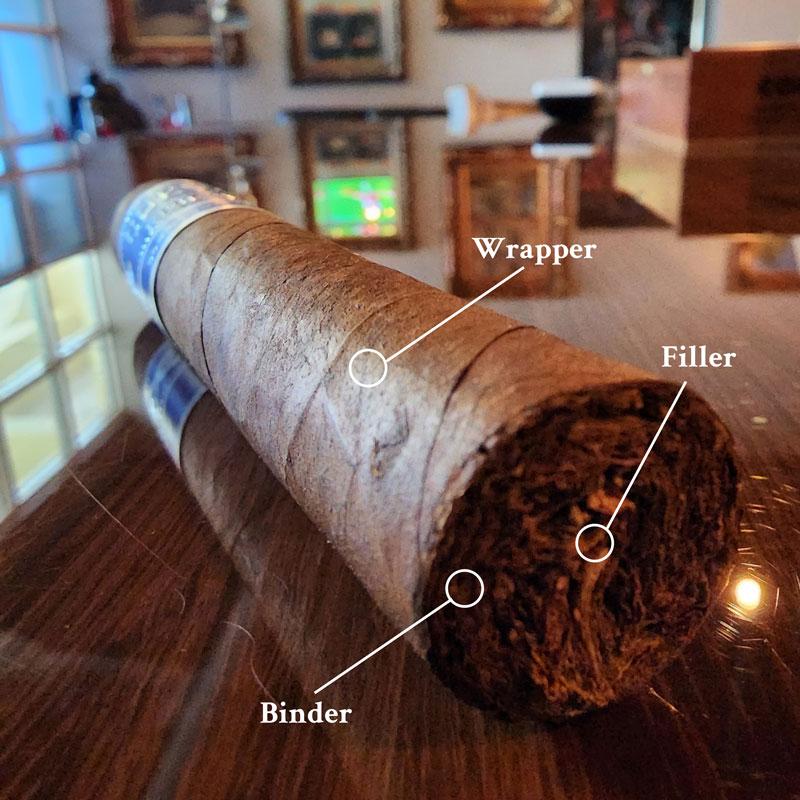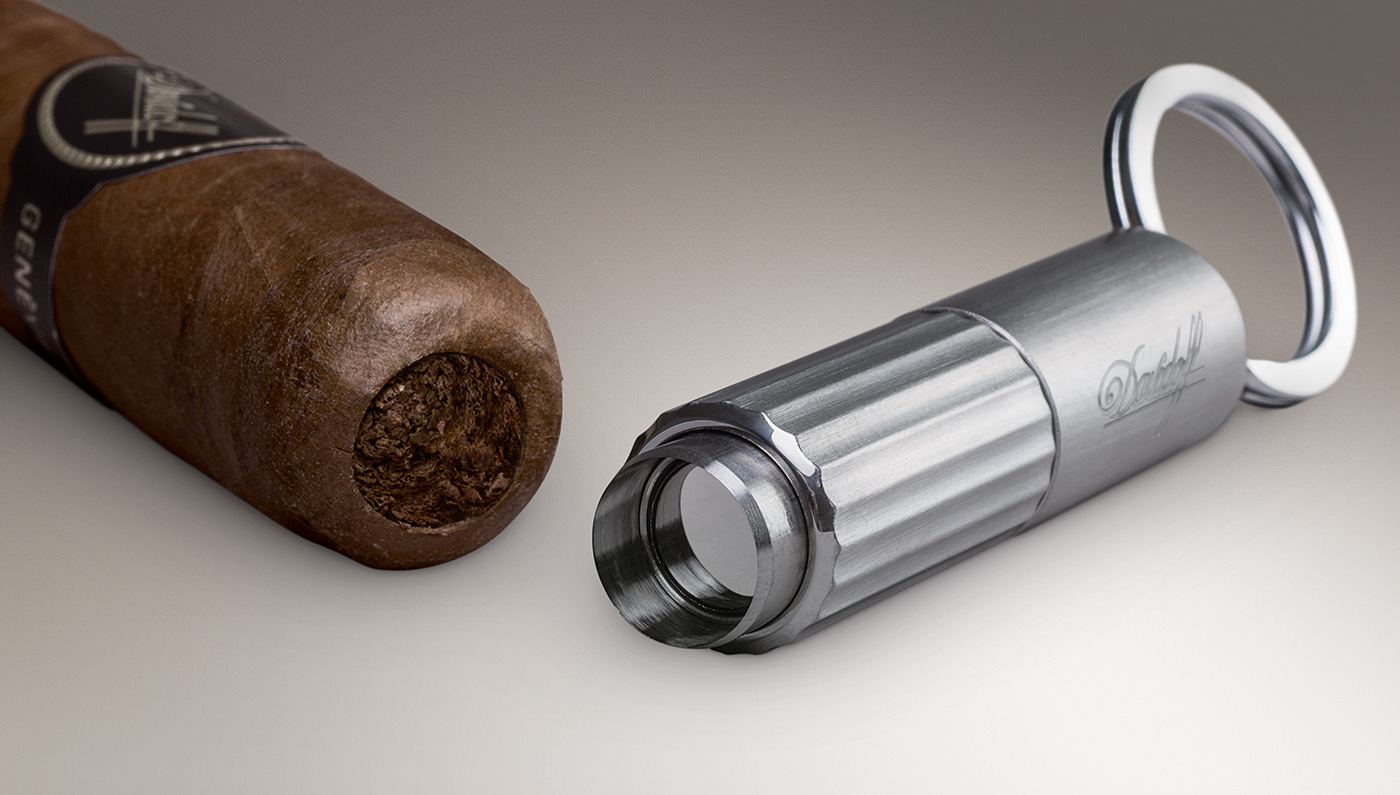Uncovering the Secrets – The Numerous Effects and Benefits Cancer of W
Cigars may be seen as a symbol of sophistication and luxury, but they also bring with them a host of health risks. Smoking cigars, like any form of tobacco use, can have detrimental effects on your health and well-being. Despite the popular belief that cigars are less harmful than cigarettes, they are still a significant source of various health problems. From lung cancer to heart disease, the effects of smoking cigars can be devastating.
One of the most harmful effects of smoking cigars is an increased risk of developing lung cancer. Cigars contain high levels of tobacco, and when smoked, release toxic chemicals into the lungs. This can damage the cells in the respiratory system and increase the likelihood of developing cancer. Furthermore, the smoke from cigars is often not inhaled as deeply as cigarette smoke, leading to longer exposure time and increased risk of lung damage.
Smoking cigars also greatly increases the risk of heart disease and cardiovascular problems. The nicotine and other chemicals found in cigars can constrict blood vessels and restrict blood flow, leading to high blood pressure and an increased risk of heart attack or stroke. Even occasional cigar smoking can have a detrimental effect on cardiovascular health, so it’s important to recognize that any level of cigar smoking carries risks.
Smoking Cigars: Exploring the Harmful Effects
Smoking cigars may seem enjoyable to some, but it comes with a myriad of harmful effects on both your health and well-being. From increased risk of cancer to cardiovascular complications, smoking cigars poses serious risks to smokers and those around them.
1. Increased Risk of Cancer
One of the most significant dangers of smoking cigars is the increased risk of various types of cancer. Cigar smoke contains numerous harmful chemicals and carcinogens that can cause cancer in different parts of the body, including the lungs, mouth, throat, and esophagus. Regular cigar smoking greatly heightens the likelihood of developing these life-threatening diseases.
2. Respiratory Issues
Smoking cigars can lead to a range of respiratory problems. The smoke from cigars irritates the lungs and respiratory tract, causing chronic coughing, wheezing, and shortness of breath. Over time, this irritation can lead to more severe conditions like chronic bronchitis and chronic obstructive pulmonary disease (COPD).
3. Cardiovascular Complications
Smoking cigars can have disastrous effects on your cardiovascular health. The toxic chemicals in cigar smoke can damage the blood vessels, leading to narrowed arteries, high blood pressure, and an increased risk of heart disease and stroke. Even occasional cigar smoking can have detrimental effects on your heart and circulatory system.
4. Oral Health Problems
Cigar smoking can result in various oral health issues. The smoke from cigars contains tar and other chemicals that can stain the teeth, cause bad breath, and contribute to gum disease. Over time, cigar smoking can also increase the risk of developing oral cancer.
5. Secondhand Smoke
In addition to the harm caused to the smoker, cigar smoking also poses risks to those around them. Secondhand smoke from cigars contains many of the same harmful substances as the smoke inhaled directly, increasing the risk of cancer, respiratory problems, and other health issues for non-smokers exposed to it.
In conclusion, smoking cigars has a range of harmful effects on both the smoker’s health and the health of those around them. From an increased risk of cancer to cardiovascular complications and respiratory problems, the dangers of cigar smoking are undeniable. Quitting smoking and avoiding exposure to secondhand smoke is essential for promoting a healthier and safer life.
Detrimental Impact on Respiratory System Health Effects
Smoking cigars has a detrimental impact on the respiratory system, leading to various health problems. The harmful chemicals present in cigars can cause severe damage to the lungs, leading to respiratory diseases and conditions. Here are some of the negative effects that smoking cigars can have on the respiratory system:
Lung Cancer
Smoking cigars increases the risk of developing lung cancer. The carcinogens and toxins in the smoke can damage the cells in the lining of the lungs, leading to the formation of cancerous tumors. Lung cancer is one of the leading causes of cancer-related deaths worldwide, and smoking cigars is a major contributing factor.
Chronic Obstructive Pulmonary Disease (COPD)
COPD is a progressive lung disease that includes chronic bronchitis and emphysema. The chemicals in cigar smoke can irritate and inflame the airways, causing chronic bronchitis. Over time, this inflammation can lead to the destruction of the air sacs in the lungs, resulting in emphysema. COPD makes it difficult to breathe and can significantly reduce the quality of life.
Table:
| Respiratory Problems Caused by Cigar Smoking |
|---|
| Lung Cancer |
| Chronic Obstructive Pulmonary Disease (COPD) |
| Bronchial Asthma |
| Respiratory Infections |
| Pneumonia |
Bronchial Asthma
Cigar smoke can trigger bronchial asthma, a respiratory condition characterized by inflammation and narrowing of the airways. People with asthma who smoke cigars may experience more frequent and severe asthma attacks. The chemicals in the smoke can also worsen existing asthma symptoms, making it harder to control the condition.
Respiratory Infections
Smoking cigars weakens the immune system and impairs the respiratory system’s ability to fight off infections. This can make individuals more susceptible to respiratory infections such as bronchitis and pneumonia. Cigar smokers are at a higher risk of developing these infections and may experience more severe symptoms compared to non-smokers.
In conclusion, smoking cigars has a detrimental impact on the respiratory system. It increases the risk of lung cancer, contributes to the development of COPD, triggers bronchial asthma, and makes individuals more susceptible to respiratory infections. Quitting smoking is essential for maintaining a healthy respiratory system and reducing the risk of these serious health conditions.
Increased Risk of Cancer
Smoking cigars significantly increases the risk of developing various types of cancer. The harmful chemicals contained in cigar smoke can lead to the formation of cancerous tumors in different parts of the body.
Lung Cancer
One of the most well-known risks associated with smoking cigars is lung cancer. Cigar smoke contains carcinogens, such as benzene and formaldehyde, which can damage the cells in the lungs and eventually lead to the development of cancer. The risk of lung cancer increases even further for individuals who inhale cigar smoke.
Oral Cancer
Smoking cigars also increases the risk of oral cancer, which includes cancer of the mouth, lips, tongue, and throat. The exposure to cigar smoke can cause mutations in the DNA of the cells in these areas, leading to the growth of cancerous tumors. In addition, the heat from the burning end of a cigar can cause irritation and damage to the oral tissues, increasing the risk of oral cancer.
To provide a better understanding of the increased risk of cancer associated with smoking cigars, the table below outlines the cancer types and their corresponding risks:
| Cancer Type | Risk Increase |
|---|---|
| Lung cancer | Significantly increased |
| Oral cancer | Increased |
| Esophageal cancer | Increased |
| Pancreatic cancer | Increased |
| Kidney cancer | Increased |
| Bladder cancer | Increased |
It is important to note that the risk of developing cancer is not limited to the types listed above. Smoking cigars can increase the risk of various other cancers, including but not limited to, stomach cancer, liver cancer, and colorectal cancer.
Overall, the increased risk of cancer is a serious consequence of smoking cigars. Quitting smoking and avoiding exposure to cigar smoke is essential to reduce the risk of developing these life-threatening diseases.
Cardiovascular Complications
Smoking cigars can have serious effects on the cardiovascular system. The chemicals in cigar smoke can cause damage to the lining of the arteries, leading to a condition known as atherosclerosis. This involves the build-up of plaque, which narrows and hardens the arteries, making it difficult for blood to flow through.
As a result of atherosclerosis, the risk of developing cardiovascular diseases such as coronary artery disease, heart attack, and stroke increases significantly. Cigar smokers are more likely to experience chest pain, shortness of breath, and fatigue due to restricted blood flow to the heart caused by narrowed arteries.
High Blood Pressure
Smoking cigars also contributes to high blood pressure, also known as hypertension. The chemicals present in cigar smoke can cause the blood vessels to constrict, leading to an increase in blood pressure. Over time, this can put a strain on the cardiovascular system, increasing the risk of heart disease and other complications.
Increased Risk of Blood Clots
Another cardiovascular complication associated with smoking cigars is an increased risk of blood clots. Cigar smoke contains chemicals that promote the formation of blood clots, which can block the blood vessels and restrict blood flow. This can lead to serious complications such as deep vein thrombosis, pulmonary embolism, or even a heart attack.
In conclusion, smoking cigars can have detrimental effects on the cardiovascular system. The risk of developing atherosclerosis, high blood pressure, and blood clots increases significantly for cigar smokers, putting them at a higher risk of developing cardiovascular diseases.
| Cardiovascular Complications of Smoking Cigars |
|---|
| Atherosclerosis |
| High blood pressure |
| Increased risk of blood clots |
Impaired Sense of Taste and Smell
Smoking cigars can have a negative impact on your sense of taste and smell. The chemicals and toxins in cigar smoke can damage your taste buds and olfactory nerves, leading to a diminished ability to enjoy and identify flavors and scents.
When you inhale cigar smoke, it can coat your taste buds with a sticky residue that dulls their sensitivity. This can make it difficult to fully taste the flavors of food and beverages, impacting your overall dining experience.
In addition, the toxins in cigar smoke can damage the olfactory nerves in your nose, which are responsible for detecting smells. This can result in a reduced ability to detect and differentiate between different scents, making it harder to appreciate the aroma of food, flowers, or other pleasant smells.
Over time, the impaired sense of taste and smell caused by smoking cigars can become permanent, even after you quit smoking. This can have a significant impact on your quality of life, as the enjoyment of food and the ability to appreciate scents are important aspects of daily life.
It’s important to note that these effects can also extend to those around you, as secondhand smoke can also impair their sense of taste and smell.
Quitting smoking cigars can help restore your sense of taste and smell and improve your overall sensory experience. It may take time for your taste buds and olfactory nerves to heal, but quitting is a crucial first step.
If you’re a cigar smoker, consider quitting to protect your sense of taste and smell and improve your overall health.
Dental Problems and Oral Health Risks
Smoking cigars can have a detrimental effect on dental health and pose several oral health risks. The habit of smoking cigars exposes the teeth and gums to various harmful substances that can lead to numerous dental problems.
Stained Teeth
One of the most common effects of smoking cigars is tooth discoloration. The nicotine and tar present in cigars can cause significant staining and yellowing of the teeth. Over time, this discoloration can become permanent and difficult to remove, negatively affecting the appearance of the smile.
Gum Disease
Smoking cigars increases the risk of developing gum disease. The toxic chemicals in cigar smoke can irritate and inflame the gums, leading to gum disease, also known as periodontal disease. Gum disease can cause redness, swelling, bleeding, and eventually, tooth loss if left untreated.
| Dental Problems and Oral Health Risks | Description |
|---|---|
| Stained Teeth | Smoking cigars can cause the teeth to become discolored and yellowed due to the nicotine and tar present in the smoke. |
| Gum Disease | Smoking cigars increases the risk of gum disease, which can lead to redness, swelling, bleeding, and tooth loss if not treated properly. |
| Bad Breath | Cigar smoke can leave a strong and unpleasant smell in the mouth, causing chronic bad breath. |
| Oral Cancer | Smoking cigars can significantly increase the risk of developing oral cancer, which can affect the lips, mouth, and throat. |
Bad Breath
Smoking cigars can lead to chronic bad breath. The strong and lingering smell of cigar smoke can cause persistent bad breath, which can be embarrassing and difficult to eliminate.
Oral Cancer
One of the most severe risks of smoking cigars is the increased chance of developing oral cancer. The toxic chemicals in cigars can cause damage to the cells in the lips, mouth, and throat, leading to the formation of cancerous tumors. Regular cigar smokers are at a higher risk of developing oral cancer compared to non-smokers.
In conclusion, smoking cigars can have significant negative effects on dental health and increase the risk of various oral health problems. From stained teeth to gum disease and oral cancer, it is crucial to be aware of the potential risks associated with this habit and take proper measures to protect dental and oral health.
Adverse Effects on Fertility and Pregnancy
Smoking cigars can have significant adverse effects on fertility and pregnancy. Female smokers are more likely to experience difficulties in conceiving compared to non-smokers. Tobacco smoke contains harmful chemicals that can damage the reproductive organs and reduce the chances of successful fertilization.
Furthermore, smoking during pregnancy poses numerous risks to both the mother and the developing baby. The chemicals present in cigar smoke can cross the placenta and reach the baby, potentially causing various complications and health issues. These include:
- Increased risk of miscarriage: Smoking cigars during pregnancy increases the risk of spontaneous abortion or miscarriage.
- Premature birth: Pregnant women who smoke cigars are more likely to give birth preterm, which can lead to numerous health problems and developmental delays in the baby.
- Low birth weight: Babies born to mothers who smoke cigars are at a higher risk of having a low birth weight. Low birth weight can increase the baby’s chances of experiencing long-term health problems.
Smoking during pregnancy can also have long-term effects on the child’s health. It may increase the risk of respiratory conditions such as asthma and chronic obstructive pulmonary disease (COPD). Additionally, children born to mothers who smoked during pregnancy may have impaired lung function and a higher risk of sudden infant death syndrome (SIDS).
It is crucial for women who are trying to conceive or are already pregnant to quit smoking cigars to protect their own health as well as the health of their baby.
Accelerated Skin Aging and Skin Damage
Smoking cigars can have a detrimental effect on the skin and can lead to accelerated skin aging and damage.
One of the main reasons cigars can cause skin aging is due to the high levels of toxins present in the smoke. When the toxins from the smoke are inhaled, they can damage the collagen and elastin fibers in the skin. Collagen and elastin are responsible for the skin’s elasticity and firmness, and when these fibers are damaged, it can lead to wrinkles, sagging skin, and a dull complexion.
Furthermore, the nicotine found in cigars can constrict blood vessels, limiting the flow of oxygen and nutrients to the skin. Without proper nourishment, the skin can appear dull, sallow, and lifeless. The restricted blood flow can also hinder the skin’s ability to repair itself, making it more susceptible to damage from environmental factors like UV radiation.
Another harmful effect of smoking cigars on the skin is the production of free radicals. Free radicals are unstable molecules that can cause oxidative stress and damage to cells. Cigars are known to increase the production of free radicals in the body, which can lead to cell damage and contribute to premature skin aging.
In addition to skin aging, smoking cigars can also result in skin damage. The heat from the burning cigar can burn the skin, leading to burns, scarring, and pigmentation issues. Cigar smoke can also cause irritation and inflammation of the skin, exacerbating skin conditions such as acne, eczema, and psoriasis.
Conclusion
Smoking cigars can have severe consequences for the skin, including accelerated skin aging and damage. The toxins in cigar smoke can damage collagen and elastin fibers, leading to wrinkles and sagging skin. Nicotine can constrict blood vessels, impairing the skin’s nourishment and repair processes. The production of free radicals can also contribute to premature skin aging. Additionally, smoking cigars can cause skin burns, scarring, and exacerbate existing skin conditions. Quitting smoking and adopting a healthy lifestyle can help mitigate these harmful effects and preserve skin health.
Secondhand Cigar Smoke Dangers
Secondhand smoke refers to the smoke that is emitted from the burning end of a cigar, as well as the smoke exhaled by the smoker. Non-smokers who are exposed to secondhand smoke can face serious health risks. Here are some of the dangers associated with secondhand smoke:
- Increased risk of cardiovascular diseases: Breathing in secondhand smoke can lead to an increased risk of heart disease, stroke, and other cardiovascular conditions. The toxic chemicals in the smoke can cause damage to blood vessels and contribute to the development of plaque, leading to atherosclerosis and other cardiovascular problems.
- Respiratory issues: Secondhand smoke can cause respiratory problems, particularly in children and individuals with pre-existing conditions such as asthma. It can worsen asthma symptoms, trigger bronchitis, and increase the risk of respiratory infections.
- Cancer: The chemicals present in secondhand smoke, including carcinogens like benzene, formaldehyde, and polycyclic aromatic hydrocarbons, can increase the risk of developing various types of cancer. These include lung cancer, as well as cancers of the throat, mouth, nasal cavity, and sinuses.
- Increased risk of sudden infant death syndrome (SIDS): Babies who are exposed to secondhand smoke have an increased risk of SIDS. This is because their developing respiratory systems are more susceptible to the harmful effects of smoke.
- Impaired lung function: Individuals exposed to secondhand smoke may experience a decline in lung function. This can lead to symptoms such as shortness of breath, coughing, wheezing, and an increased risk of developing chronic obstructive pulmonary disease (COPD).
It is important to protect yourself and others from the dangers of secondhand smoke. Avoiding areas where smoking is allowed and encouraging smokers to quit can help reduce exposure and improve overall health.
Question-answer: What do cigars do
What is the definition of a premium cigar?
A premium cigar is defined as a hand-rolled cigar made with high-quality tobacco.
What is the difference between a little cigar and a large cigar?
Little cigars are typically smaller in size than traditional large cigars and may resemble cigarettes in appearance.
How are cigars and cigarettes different in terms of health effects?
Cigars are often perceived as less harmful than cigarettes, but both can have adverse health effects due to tobacco and nicotine content.
What are the health risks associated with smoking a little cigar?
Smoking a little cigar carries similar health risks as smoking larger cigars, including an increased risk of cancer, heart disease, and respiratory issues.
What does the National Cancer Institute say about cigar use and health?
The National Cancer Institute warns that cigar smoking is associated with significant health risks, including cancer and heart disease.
How do flavored cigars differ from traditional cigars in terms of health effects?
Flavored cigars may appeal to younger individuals and mask the harsh taste of tobacco, potentially leading to increased use and health risks.
How does the National Health Interview Survey measure cigar use among the population?
The National Health Interview Survey collects data on cigar use by asking individuals about their cigar smoking habits in the past 30 days.
What are some of the adverse health effects associated with cigar smoking?
Cigar smoking is linked to an increased risk of cancer, heart disease, and respiratory issues, similar to the risks associated with cigarette smoking.
How do premium cigars differ from other types of cigars?
Premium cigars are typically hand-rolled with high-quality tobacco and are often considered to be of higher quality than machine-made cigars.
What does the Family Smoking Prevention and Tobacco Control Act regulate regarding cigars?
The Family Smoking Prevention and Tobacco Control Act regulates the sale, distribution, and marketing of tobacco products, including cigars, to protect public health.
What are the health effects of “premium cigars” compared to other types of cigars?
Premium cigars are often perceived as less harmful than other cigars, but they still pose significant health risks, including cancer, heart disease, and respiratory issues.
How many premium cigars per day are considered excessive?
There is no safe level of cigar smoking. Even smoking one premium cigar per day can increase the risk of health problems.
How are premium cigars assessed in terms of tobacco and health by public health organizations?
Public health organizations assess premium cigars as tobacco products that pose health risks similar to other forms of tobacco, despite their perceived quality.
Who are the primary users of premium cigars?
The primary users of premium cigars are often individuals who enjoy the taste, aroma, and social aspects of cigar smoking.
How do cigars compare to other tobacco products in terms of health effects?
Cigars, including premium cigars, are smoked and can cause similar adverse health effects as other tobacco products, such as cigarettes.
What is the National Health and Nutrition Examination Survey’s data on premium cigars?
The National Health and Nutrition Examination Survey collects data on premium cigar use and its impact on public health.
What is the risk associated with smoking premium cigars?
Smoking premium cigars increases the risk of various health issues, including cancer, heart disease, and respiratory problems.
What is the impact of premium cigar emissions on public health?
Emissions from premium cigars contain harmful chemicals and particulate matter that can negatively impact public health, similar to other tobacco products.
How do little cigars or cigarillos differ from premium cigars?
Little cigars or cigarillos are smaller in size and may be flavored, but like premium cigars, they still pose health risks when smoked.
How do premium cigars differ from cigarettes in terms of health effects?
While some perceive cigars, including premium cigars, as less harmful than cigarettes, both can cause serious health problems when smoked.








